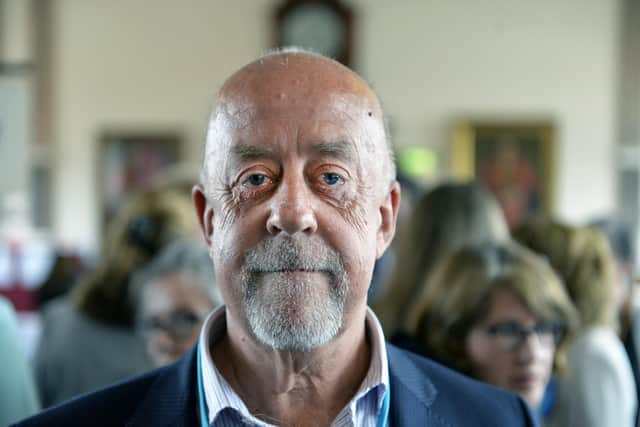Government accepts Eastbourne council’s request for 'exceptional financial support'
and live on Freeview channel 276
The government decision was confirmed at a full council meeting on Wednesday (February 28), which saw councillors agree their budget for the upcoming 2024/25 financial year.
As previously reported, the council had asked the government for Exceptional Financial Support (EFS) totalling £6m to address a sharp rise in the authority’s homelessness costs.
Advertisement
Hide AdAdvertisement
Hide AdThis figure — made up of £3m to offset the homelessness overspend in 2023/24 and a further £3m in 2024/25 — is to be found through capitalisation, a process through which normal accounting rules are relaxed to allow capital money to be spent on revenue costs.


In practice, the government’s capitalisation direction means the borough council will be able to borrow money or use money from asset sales to fill the gap in its budget. The council was previously given a capitalisation direction in 2021.
Introducing the budget, cabinet member for finance and resources Robin Maxted warned how this process was not a sustainable solution to the council’s financial pressures.
He said: “By recognising our need for exceptional financial support, this demonstrates that the department has understood the difficulties Eastbourne Borough Council has and is facing as a result of the rising demand and cost of temporary accommodation.
Advertisement
Hide AdAdvertisement
Hide Ad“Of course our preferred option was for the government to fully fund this statutory service or at least upgrade the local housing benefit subsidy arrangement, but now welcome this EFS. But make no mistake … this arrangement, as welcome though it is, is just a temporary reprieve for the council’s finances.
“The council will still be undertaking urgent review of existing services with a view to ceasing some discretionary services, limiting statutory services, accelerating the existing programme of asset disposals and making further reductions in the council’s capital programme.”
He said the system for funding local government was ‘broken’, arguing councils across the country faced serious financial challenges.
Conservative opposition councillors argued the council’s financial troubles had ‘deeper roots’ than the rising costs of temporary accommodation, pointing to the council’s levels of debt among other matters.
Advertisement
Hide AdAdvertisement
Hide AdThe group’s finance spokesman, Cllr David Small said: “How on earth does this council find itself back in the same position once again just three years after last being bailed out by the government?
“The issue then was critical levels of debt interest and falling income streams; what has happened in the three years since? Debt levels are up, interest payments are up and our income isn’t close to where it needs to be.
“The government-commissioned CIPFA review, that subsequently said they were misled by this authority, recommended asset sales. What has happened to those? We have sold almost nothing.
“It was only in July that Cllr Maxted announced this council’s finances were strong and in a very sustainable position, then later said our use of reserves is sustainable.
Advertisement
Hide AdAdvertisement
Hide Ad“I mean, seriously, how can any councillor in this room be expected to have confidence in this administration to manage what is ultimately our residents money, when they clearly have no idea what is going on in our council’s finances.”
But Liberal Democrats took issue with this characterisation.
Cllr Maxted said: “For the last 14 years this council has suffered drastic cuts to its income. Why? Because of central government, because of their policies, their austerity.
“How on earth do you think that we can function in isolation of the national government?”
Advertisement
Hide AdAdvertisement
Hide AdHe added: “I’d respectfully suggest to Cllr Small that he gets his head out of the sand. We’ll allow him plenty of time to catch up with the reality of the problem, because he really isn’t in the real world.
“Perhaps you could even join us in our mission to come up with some realistic solutions rather than just pie-in-the-sky criticisms.”
Despite capitalisation, the council will need to draw £1.716m from reserves to balance its 2023/24 budget. The coming year will see the council able to put some money (around £115k) back into reserves, however.
The council is also set to increase its council tax demand by 2.99 per cent from April, the maximum allowed without a local referendum. This would see a band D household pay £277.74 next year, an increase of £8.06 on the bill for 2023/24.
The council will also be seeking to deliver £3.8m of savings contained within its Stability and Growth Programme over the next few years. Of this, around £1.9m will fall in 2024/25.